Consortium
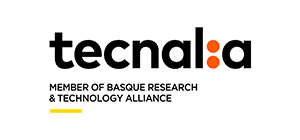
Tecnalia Research & Innovation (TEC)
TECNALIA is a private, independent, non-profit applied research centre of international excellence and member of the Basque Research and Technology Alliance (BRTA). Legally a Foundation, TECNALIA is the leading private and independent research and technology organisation in Spain (over 777 patents and promoted more than 30 spin-off companies, participates in 352 H2020 projects, coordinating 73 of them, and in 35 HORIZON EUROPE projects under negotiation[1], coordinating 6 of them) and one of the largest in Europe, employing around 1,472 people (266 PhDs) and with income of 113,5 Million € in 2020.
We collaborate with companies and institutions to improve their competitiveness, people’s quality of life and achieve sustainable growth. Our main areas of action are fully aligned with the Sustainable Development Goals (SDGs): smart manufacturing, digital transformation, energy transition, sustainable mobility, personalised health and urban ecosystem.
TECNALIA is the project coordinator and will lead WP1 Management. Apart the overall coordination, administrative, financial and contractual management in the project, it will also conduct the R&D tasks for metal extraction, the qualification of materials for high performance batteries, as well as WP8 - dealing with the sustainability assessment. Additionally, TECNALIA will also support other activities for the upscaling phase, as well as the Communication, Dissemination, Exploitation and Clustering package.
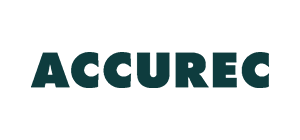
Accurec-Recycling (ACC)
Based in Germany, Accurec (http://www.accurec.de) has been leader in batteries recycling for more than 20 years. The company is strongly engaged with the sustainability and energy efficiency by using newest technology to design recycling processes where the maximal extraction of materials is achieved with the minimum energy and chemical consumption. With more than 80 people and its well-stablished recycling process of Nickel-Cadmium, Nickel-Metal-hydride batteries, Accurec is continuously improving the recycling technology of Lithium-ion batteries.
We also collaborate in the research and development on newest processes among other partners, covering and providing solutions to the future scenarios with sustainability, economics and environmental impact as main targets.
Accurec will lead the activities of selection, characterisation and supply of End-of-Life batteries as well as their pre-treatment. Additionally, it will actively contribute in: the development of the thermal process for black mass generation and providing material for the extraction activities, the recovery of the electrolyte and fluorinated compounds, the validation of lab scale pre-treatment and the adaptation and validation of the industrial pre-treatment, the qualification of materials for high performance batteries, and sustainability assessment.
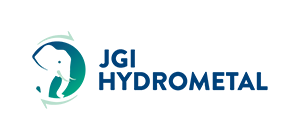
Jean Goldschmidt International – Hydrometal (JGI-HM)
The Jean Goldschmidt International – Hydrometal (JGI-HM) group is a leader in the circular economy with more than 60 years of expertise in the trading and recycling of non-ferrous metals. JGI (headquartered in Brussels, Belgium) is active in the worldwide trading of raw materials, products, and by-products bearing metals, whereas Hydrometal (a subsidiary of JGI located in Engis, Belgium) is focused on the hydrometallurgical recycling of non-ferrous metals from highly-complex materials, such as by-products and waste. The industrial recycling activities of Hydrometal are essential in the worldwide value chain of (critical) metals and significantly contribute to avoiding the economic, environmental, and societal consequences of landfilling. JGI-HM’s client portfolio includes chemical and metallurgical companies across the globe.
Hydrometal will lead the work package 6: Upscaling of the most promising technologies. Involved activities aim at validating in industrial environments (TRL 6) the most promising routes for both pre-treatment and material recovery in battery recycling. Main responsibilities are to build and operate the Advanced Hydrometallurgy prototype (capacity of 10 kg/day of metal oxides) for the recycling of black mass and downstream production of high-performance cathodic and anodic materials. Operation of the pilot unit will provide the data needed for environmental and economic assessments.
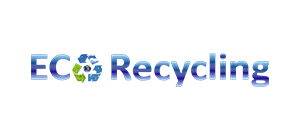
ECO RECYCLING SOCIETA A RESPONSABILITA LIMITATA (ECO)
Eco Recycling (ECO) is a company founded in 2008 as a spin-off of “La Sapienza” University of Rome with the primary mission of technology transfer in the field of waste and wastewater treatment.
Some researchers of this University and one SME involved in the digital technology sector are part of the company structure. The team is composed by chemical engineers, engineers and industrial chemistries. The experience gained in recent years has allowed it to become an expert company in the following sectors: innovative process and technology development; scale-up from lab to prototype scale, basic and detailed design of prototype units, prototypes construction, execution of experimental campaigns on prototypes, provision of know-how, basic design of full-scale plant, detailed engineering assistance for full-scale plant, training of personnel involved in the management of prototypes/plants and assistance and start-up of full-scale plants. Eco Recycling has an industrial experimental platform situated in Civita Castellana (Italy) on which all the prototype unit dedicated to the treatment of different types of WEEE and batteries are located.
In the sector of recycling and recovery of raw materials starting from different wastes, Eco Recycling currently owns 4 patents: 2 for batteries and 2 for photovoltaic panels.
Given its considerable experience in the design of pilot and full-scale plants aimed at the recycling of different types of WEEE and batteries, within this project, Eco Recycling will design the hydrometallurgy prototype that allows the validation of the innovative process developed in the project and will provide support to JGI-HM for the relative construction.
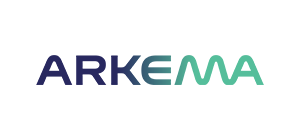
ARKEMA FRANCE SA (ARK)
Building on its unique set of expertise in materials science, Arkema designs materials to address the ever-growing demand for innovative and more sustainable solutions, driven by the challenges of new energies, new technologies, the depletion of resources, mobility, and increasing urbanization. The Group is especially developing and producing materials for li-ion battery cells, modules and packs. Sustained by the collective energy of its 20,200 employees, Arkema operates in some 55 countries and reports sales of €9.5 billion.
Arkema will contribute to the characterization of recovered polymers and electrolytes, thanks to different analytical methods. Thanks to its Battery Center of Excellence, Arkema will also work on the reuse of recycled materials, especially fluoropolymer binders, to make batteries again.
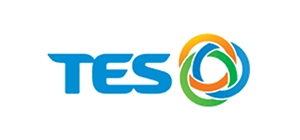
TES RECUPYL SAS (TES)
TES-RECUPYL, originally from RECUPYL Ltd, is a spin-off of University of Grenoble, established in 1994 in the field of recycling technologies. RECUPYL is specialized in the development and industrial implementation of recycling technologies. These technologies, based on hydrometallurgy, support the transformation of waste into valuable materials for re-use, thus closing the loop. They use processes with low energy consumption and no CO2 emissions.
RECUPYL has 20 years’ experience in battery recycling and including lithium-based batteries, with a first R&D project carried out during EU-FP5 (2002) as coordinator. This project was a full success and disseminated in several countries at industrial license level. The recycling route promoted by TES-RECUPYL is working at room temperature using mechano-physical treatment combined with hydrometallurgy allowing also a recovery of materials with high recovery rate and leading to RESOURCE CONSERVATION without any negative CO2 impact. All the research are supported with patents, for commercialization/ Dissemination.
TES-RECUPYL has now the support of worldwide group YES (www.tes-amm.com).
For its involvement in the project, the company will participate in the WP related to its expertise and mechano-physical treatment concerning new EV batteries and new chemistries of LIB moving from scraps to raw materials (mainly for hazardous and/or strategic materials (beside cobalt the other strategic materials are lithium, phosphate and fluorine). WP4 Task 4.1: TES will be responsible for shredding batteries using its proprietary in-house technology (Patent covered) . This first step of the process allows safe access to active materials and followed by a chain of successive steps based on physical separations to sort between the base metals (Al, Cu, Fe), organic fractions, fine fraction black mass. WP4 Task 4.7.: thanks to its pilot platform having pre-pilot (10 kg/h); semi pilot (80 kg/h) and full industrial pilot (500kg/h) TES will contribute to validation of some unit operations from the most promising pre-treatment routes and preparation for upscaling. WP 8: Contribution of sustainability assessment of the developed mechano-physical process.
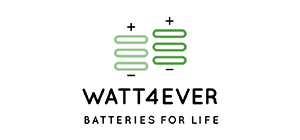
WATT4EVER SRL/BV
Watt4Ever builds new, green, and high-added-value storage systems using batteries coming from used electric vehicle batteries.
Founded in 2022 by a consortium of well-established partners looking for a way to support recycling electric batteries, it aims to become a one-stop shop for EV batteries in Belgium. Watt4Ever focuses on remanufacturing and repurposing second-life and end-of-life batteries to use them into green and robust energy systems.
Watt4Ever contributes to RHINOCEROS' objective by conducting the EoL batteries characterization analysis, co-planning processes for automated LIBs sorting and dismantling, and supporting the broad sustainability assessment.
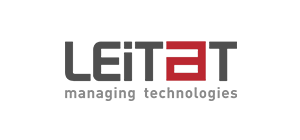
Leitat Technological Center – Managing Technologies
Founded in 1906, Leitat is one of the reference entities at state and European level in technology management. It has a team of more than 500 professionals, experts in applied research, technical services and management of technological and innovation initiatives. Leitat provides social, industrial, economic and sustainable value, offering comprehensive solutions in multiple sectors and areas: development of new materials, eco-sustainable production, occupational health prevention systems, revaluation of waste and use of natural resources, interconnectivity and digitization of industry, green energy and maximization of energy efficiency. Leitat is recognized by the Ministry of Economy, Industry and Competitiveness and is one of the main entities participating in the Horizon2020 program of the European Union.
Leitat will be developing membrane technologies aiming at Zero-waste strategy for the recovery of remaining elements in the effluents and wastewater of the refining processes and therefore towards zero-liquid-waste discharge processing.
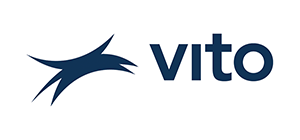
VLAAMSE INSTELLING VOOR TECHNOLOGISCH ONDERZOEK N.V. (VITO)
VITO (Flemish Institute for Technological Research), is a leading European independent research and consultancy centre in the areas of cleantech and sustainable development, elaborating solutions for the large societal challenges of today. Sustainable chemistry, energy, health, materials management and land use: these are the five topics VITO focuses on. These topics have been set out in five research programs. They offer an answer to the challenges that mankind and society are confronted with today and in the future. Each program builds up a strong base of knowledge and skill, with added value for industry and society. The result is new and innovative research and a comprehensive range of scientific services.

KARLSRUHE INSTITUTE OF TECHNOLOGY (KIT), INSTITUTE FOR APPLIED MATERIALS - ENERGY STORAGE SYSTEMS (IAM-ESS)
The Institute for Applied Materials – Energy Storage Systems at KIT deals with the production of novel materials for energy storage, such as Li-ion batteries and post-lithium systems, as well as the research in the processes involved in energy storage, the manufacture, and testing of electrodes and cells.
In addition to the laboratory equipment required for research, the institute has access to large-scale research facilities such as neutron and synchrotron radiation sources. In cooperation with these facilities, the institute develops in-situ and in-operando techniques to investigate specific aspects of materials and complete commercial devices.
The innovative mechanochemical approach proposed by KIT will be focused on the delithiation of the black mass and its transformation into a transition-metal-rich composite, which will be used for further modification into battery-grade solids. In addition, the reactive milling process will target the extraction of high-purity Li from the black mass without highly miscible Na and/or other additional components used in typical hydrometallurgical methods.
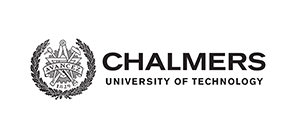
CHALMERS UNIVERSITY OF TECHNOLOGY/CHALMERS TEKNISKA HOGSKOLA AB (CHA)
Chalmers University of Technology in Gothenburg conducts research and education in technology and natural sciences at a high international level since 1829. The university has 3100 employees and 10,000 students, and offers education in engineering, science, shipping and architecture. With scientific excellence as a basis, Chalmers promotes knowledge and technical solutions for a sustainable world. Through global commitment and entrepreneurship, we foster an innovative spirit, in close collaboration with wider society. Industrial Materials Recycling group is one of the pioneer research teams working on battery and solar cell recycling as well as metal recovery from mining tailings, industrial waste, municipal solid waste inciniration ashes and WEEE.
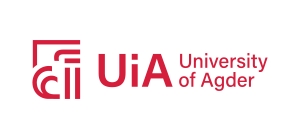
UNIVERSITETET I AGDER (UiA)
The University of Agder (UiA) is an academic institution that provides a combination of excellent educational and research opportunities within a pleasant and open environment. Regionally anchored in southern Norway, which is famous for its astonishing natural surroundings, UiA offers a wide range of studies across its faculties. The university has two campuses, one in Kristiansand and one in Grimstad. UiA is an open and inclusive university characterised by a strong culture of collaboration and a global outlook. Co-creation of future knowledge is their common vision. The University of Agder aims at further developing education and research at a high international level.
The Faculty of Engineering and Science cooperates extensively both on research and education with high-profiled international technology companies in the region. Most of the Bachelor’s and Master’s theses are written in cooperation with local industry and the public sector. The University of Agder is a pioneer in mechatronics with the only Master’s and PhD programme in this field in Norway. The Energy Materials Research Group has developed hydrogen, fuel cell and an application-oriented Battery Engineering education, in close proximity and collaboration with major battery players in the south of Norway and internationally. It offers Bachelor’s, Master’s and PhD training in these areas.
UiA will be responsible for the automated -characterization of battery state - discharge via the grid – dismantling, for reuse or recycling. A particular focus will be given to develop flexible and agile robotic dismantling operation, able to adapt and react to new situations. In WP2, UiA will support with selecting the correct parameters that needs to be collected for the subsequent automation activities.
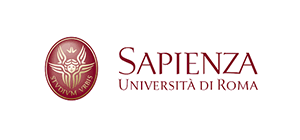
Sapienza University of Rome (UoS)
(Sapienza University), https://www.chem.uniroma1.it/en (Department of Chemistry)
Founded in 1303, Sapienza is the oldest university in Rome and the largest in Europe. There are around 120.000 students enrolled and more 3500 professors and researchers. Sapienza currently offers 300 degree programmes (Bachelor’s and Master’s) and over 90 PhDs and 80 specialization schools, which are run by 11 Faculties and 58 Departments.
Sapienza participates in RHINOCEROS mostly with researchers from Department of Chemistry. This group has a consolidated expertise on the development of hydrometallurgical recycling processes and the synthesis of electrode materials for energy storage.
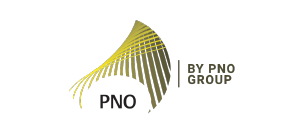
PNO INNOVATION
PNO Innovation Belgium is specialised in Innovation Management and funding, providing support services to private and public organizations in Innovation processes, Technology Transfer, IT solutions and funding for research, development and innovation.
PNO will lead Communication, Dissemination and Exploitation activities and will bring its international consulting experience into the consortium including extensive project and innovation management, exploitation and business planning expertise. A particular focus will be given to value chain stakeholders analysis, to identify and engage relevant stakeholders for further exploitation activities, as well as market and business analysis to support the consortium into bringing the Key Exploitable Results closer to the market.
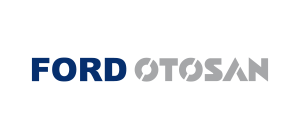
FORD OTOMOTIV SANAYI ANONIM SIRKETI (FORD)
Ford Otosan (Ford Otomotiv Sanayi A.Ş.), is a publicly traded (18%) company, where Ford Motor Company* (41%) and Koç Holding A.Ş.(41%) have equal shares. Ford Otosan, being one of the top 3 exporting companies of Turkey since 2004, has achieved 9 consecutive years automotive industry championship and is Turkey’s export champion for 5 years in a row. The leadership also continued in 2019 by the export of vehicles and spare parts to 96 countries in 5 continents worth 5.9 billion USD. Ford Otosan, operating in 3 main centers with its Gölcük and Yeniköy Plants in Kocaeli, Eskişehir Plant in Eskişehir, Sancaktape R&D Center and Spare Parts Warehouse in İstanbul, employs almost 11,000 people. Ford Otosan is the most valuable automotive company in Borsa İstanbul.
Ford Otosan has the biggest and most capable R&D organisation of the Turkish automotive industry in Turkey with its R&D engineer staff of 1,389 people. Ford Otosan R&D Center is the global hub for heavy commercial vehicles and related powertrains and also global spoke for light commercial vehicle development and diesel powertrain engineering. Ford Otosan, which is recognized as the “Private Company with the Highest R&D Spending” in Turkishtime’s survey on “R&D 250, Turkey’s Top 250 Companies with Highest R&D Expenditures”, is the only Turkish company capable of designing the whole vehicle including the engine, and interior and exterior looks.
Ford Otosan, established in 1959, with its production capacity of 455,000 commercial vehicles and 70,000 engines and 140,000 powertrains by the end of 2019, is the biggest commercial vehicle production center of Ford in Europe. Within the evaluation carried among the plants of Ford Motor Company, Kocaeli and Eskişehir plants are shown as one of the “Best Vehicle Production Centers”
FORD OTOSAN will be responsible for the batteries supply and their selection criteria prior to batteries supply. In work package 3, FORD OTOSAN will support partners in battery recognition, automated characterization of battery state and discharge via the grid and dismantling aspects with our know-how. Lastly, FORD OTOSAN will validate and compare the final pouch cells that will be produced by TECNALIA against FORD OTOSAN’s commercially used cells. LCA & LCC studies will be conducted for the pre-commercial pilot technologies developed in the project and the results will be used to select the most economical and environmentally friendly technology.
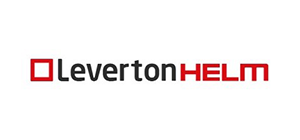
LEVERTONHELM LIMITED
LevertonHELM is a Lithium chemicals producer based in the UK and founded in 1977. LevertonHELM is focused on the manufacturing of a wide range of inorganic Lithium chemicals with operations located in Basingstoke, UK. Next to that, the company is investing in setting up a large-scale refining plant for the production of battery grade Lithium products in Europe. Further on, LevertonHELM intends to participate in the Lithium supply chain by offering recycling solutions and toll manufacturing services for Lithium conversion and refining. The company’s senior management has a vast experience within the global Lithium industry.
Main tasks and responsibilities in the project: LevertonHELM will benchmark and qualify the Lithium products produced by KIT and UoS as battery grade material. In case the product is not battery grade, it will be further treated using LevertonHELM’s standard processes to transform Lithium concentrates into battery grade materials (e.g., LiOH.H2O or Li2CO3 with >99.2% purity).

CIDETEC
CIDETEC is a non-profit R&D center founded in 1997 and based in San Sebastian (Spain) aimed at increasing the innovation capacity and competitiveness of companies through the generation and transfer of technological knowledge. CIDETEC integrates three technology centers specialised in Energy Storage, Nanomedicine and Surface Engineering.
CIDETEC Energy Storage center is focused on advanced battery technologies for electric mobility, renewable energy, and industrial applications, covering the entire value chain from battery chemistry to final application. We design and develop cells, modules and battery packs tailored to our customers’ needs, with a clear commitment towards technology transfer to industry. CIDETEC has unique capabilities in Europe to test and characterise batteries, model and predict their duration with specific usage profiles, as well as to adequately size different systems, offering technological services for material validation, pilot plant manufacturing, battery engineering and testing. The facilities are supplemented by a second site in MUBIL Electromobility Hub, where the extension to our Battery Test Laboratory is located.
